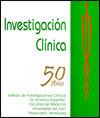胸腺素β4通过激活AKT途径调节内皮细胞功能
IF 0.1
4区 医学
Q4 MEDICINE, RESEARCH & EXPERIMENTAL
引用次数: 0
摘要
血管内皮细胞具有高度异质性,并与多种疾病有关。胸腺素β4(Tβ4)在内皮细胞分化、迁移和血管生成中发挥多效性作用。然而,Tβ4在内皮细胞调节中发挥的潜在机制尚未得到很好的研究。在本研究中,将Tβ4-GFP腺病毒转染人脐静脉内皮细胞(HUVECs),并通过荧光显微镜分析细胞形态。用ELISA法测定Tβ4的表达浓度。此外,还研究了Tβ4过表达对HUVECs增殖、凋亡和迁移的影响。采用实时定量PCR和蛋白质印迹法检测Tβ4过表达的HUVECs的mRNA和蛋白质表达。此外,通过PI3K/AKT抑制剂LY294002的处理,测试了Tβ4在HUVECs功能中的潜在分子机制。Tβ4的过表达增加了HUVECs的细胞能力,并上调了增殖标志物PCNA和Cyclin D1的表达。此外,在常氧和缺氧条件下,Tβ4的过表达降低了HUVECs的凋亡。此外,Tβ4的过表达增加了HUVECs通过膜迁移的能力,并上调了MMP-2和MMP-9的水平。LY294002的使用降低了由Tβ4过表达诱导的p-AKT(Ser473)水平。重要的是,LY294002减少了Tβ4诱导的HUVECs增殖和迁移。总之,我们的结果表明,Tβ4是HUVECs功能的主要调节因子,通过激活AKT信号通路。本文章由计算机程序翻译,如有差异,请以英文原文为准。
Thymosin β4 regulates endothelial cell function via activating the AKT pathway
The vascular eendothelial cells are highly heterogeneous and associated with numerous diseases. Thymosin β4 (Tβ4) plays pleiotropic roles in endothelial cell differentiation, migration and angiogenesis. However, the underlying mechanisms played by Tβ4 in the regulation of endothelial cells have not yet been well investigated. In the present study, Tβ4 -GFP adenovirus, transfected into human umbilical vein endothelial cells (HUVECs), and cell morphology were analyzed by fluorescence microscopy. ELISA was used to determine the concentration of Tβ4 expression. Furthermore, the effects of Tβ4 overexpression on HUVECs proliferation, apoptosis and migration were investigated. Real-time quantitative PCR and western blot were conducted to examine mRNA and protein expression in HUVECs with Tβ4 overexpression. Moreover, the underlying molecular mechanism of Tβ4 in HUVECs function was tested through treatment with LY294002, a PI3K/AKT inhibitor. Overexpression of Tβ4 increased the cell ability of HUVECs, and up-regulated the expression of the proliferation markers PCNA and Cyclin D1. In addition, overexpression of Tβ4 reduced HUVECs apoptosis, both under normoxic and hypoxic conditions. Moreover, overexpression of Tβ4 increased the ability of HUVECs to migrate through the membrane and up-regulated levels of MMP-2 and MMP-9. The use of LY294002 decreased the p-AKT (Ser473) level, which was induced by Tβ4 overexpression. Importantly, LY294002 reduced Tβ4-induced HUVECs proliferation and migration. In conclusion, our results suggest that Tβ4 is a major regulator of HUVECs function by activating the AKT signaling pathway.
求助全文
通过发布文献求助,成功后即可免费获取论文全文。
去求助
来源期刊

Investigacion clinica
MEDICINE, RESEARCH & EXPERIMENTAL-
CiteScore
0.20
自引率
50.00%
发文量
2
审稿时长
>12 weeks
期刊介绍:
Estudios humanos, animales y de laboratorio relacionados con la investigación clínica y asuntos conexos.
 求助内容:
求助内容: 应助结果提醒方式:
应助结果提醒方式:


